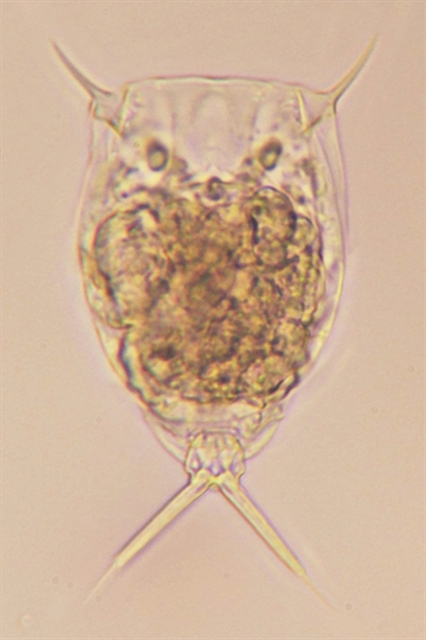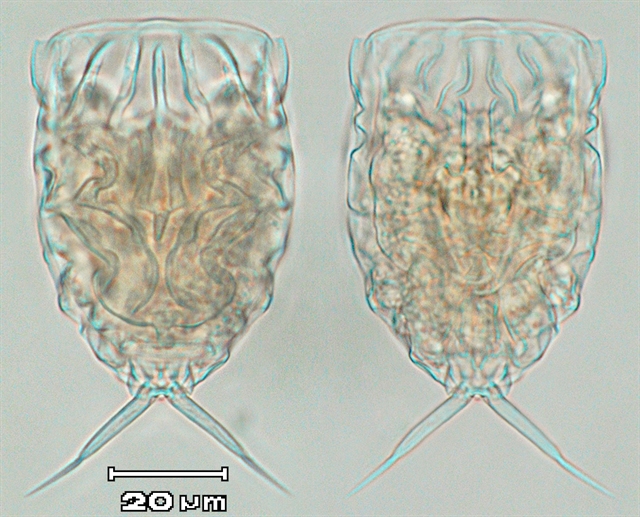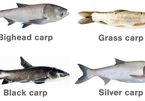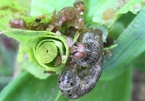 |
|
A microscope photo of a new rotifer species -- Lecane Langsenensis -- found bybiologists from Đà Nẵng. It's one of five rotifer species that were discovered. — Photo courtesy Trịnh Đăng Mậu
|
A scientific report on the five new rotifer species – Lecane Langsenensis; Lecane Phapi; Lecane Dorysimillis; Trichocerca bauthiemensis and Ploesoma asiaticum – was released in the scientific magazine Zootaxa – a peer-reviewed scientific mega journal for animal taxonomists, in 2019, and the Journal of Limnology published in 2013.
The five species rotifer were found in the Hương and Như Ý rivers in the central Thừa Thiên-Huế Province and Láng Sen nature reserve in the southern Long An Province following research from 2013-19.
Dr. Trịnh Đăng Mậu, who researched the five rotifer species, said the Lecane Langsenensis was found in joint research with two colleges, Võ Văn Minh and Phan Doãn Đăng, in Láng Sen reserve in 2015 and the Hương River in 2019.
The other four Rotifer species – Lecane Phapi; Lecane Dorysimillis; Trichocerca bauthiemensis and Ploesoma asiaticum – were included in the research with two professors, Hendrik Sergers from the Royal Belgium Institute of Natural Sciences and La-orsri Sanonmuang from Khon Kaen University of Thailand, at Bầu Thiêm Lake, Thủy Tiên Lake and Như Ý River in Thừa Thiên-Huế Province in 2011-15. The scientific reports on the four species were published in the Journal of Limnology in 2013 and Zootaxa in 2015.
 |
|
Image of a new rotifer species -- Lecane Dorysimillis -- found by biologists in central Việt Nam. Reports on the five new rotifer species in the world were released in scientific magazines in 2019. — Photo courtesy Trịnh Đăng Mậu |
According to the reports, 72 rotifer species were first recorded in freshwater and saline water zones in Việt Nam in 1966, and 52 more species found in northern Việt Nam in 1980. A few studies then found 65 species in the central region and 49 species in the southern region in 2011 and 2012.
Recent studies from 2013-19 documented 100 new records to Việt Nam’s rotifer fauna and the five new species to science. These results indicated a high potential of rotifer diversity in Việt Nam, Mậu said.
He said about 2,030 rotifer species were known in the world.
Mậu, who is head of the lab for algae research and bioactive natural products at the Đà Nẵng College for Science and Education, said rotifer plays a crucial role in the energy flow because they are responsible for transforming carbon from picogram and nanoplankton to macrozooplankton, acting as links between microbial loops and larger aquatic food.
Rotifers are considered effective indicators for environmental conditions, and they can be used as live feed for fish larvae in aquaculture, he added.
The report on the five new rotifer species was included in the list of 121 scientific articles from Đà Nẵng scientists that were published in scientific magazines in 2019.
Three new species of the ginger family and a new Rowley’s litter frog (leptolalax rowleyae) were found in the Sơn Trà Nature Reserve in the city following research between 2012-18. — VNS

Exotic species protection: pros and cons
Not all exotic species are harmful to the native environment. Many of them bring high economic value. Therefore, there must be a process to assess the benefits and harms caused by exotic species.

Exotic species threaten native organisms
Vietnam had to spend time and money to eliminate exotic creatures that attacked agriculture in 2019.
 A group of biological scientists and researchers from the central city’s Science and Education College together with two professors from Belgium and Thailand have found five new rotifer species after research conducted in Vietnam from 2013." itemprop="description" />
A group of biological scientists and researchers from the central city’s Science and Education College together with two professors from Belgium and Thailand have found five new rotifer species after research conducted in Vietnam from 2013." itemprop="description" />